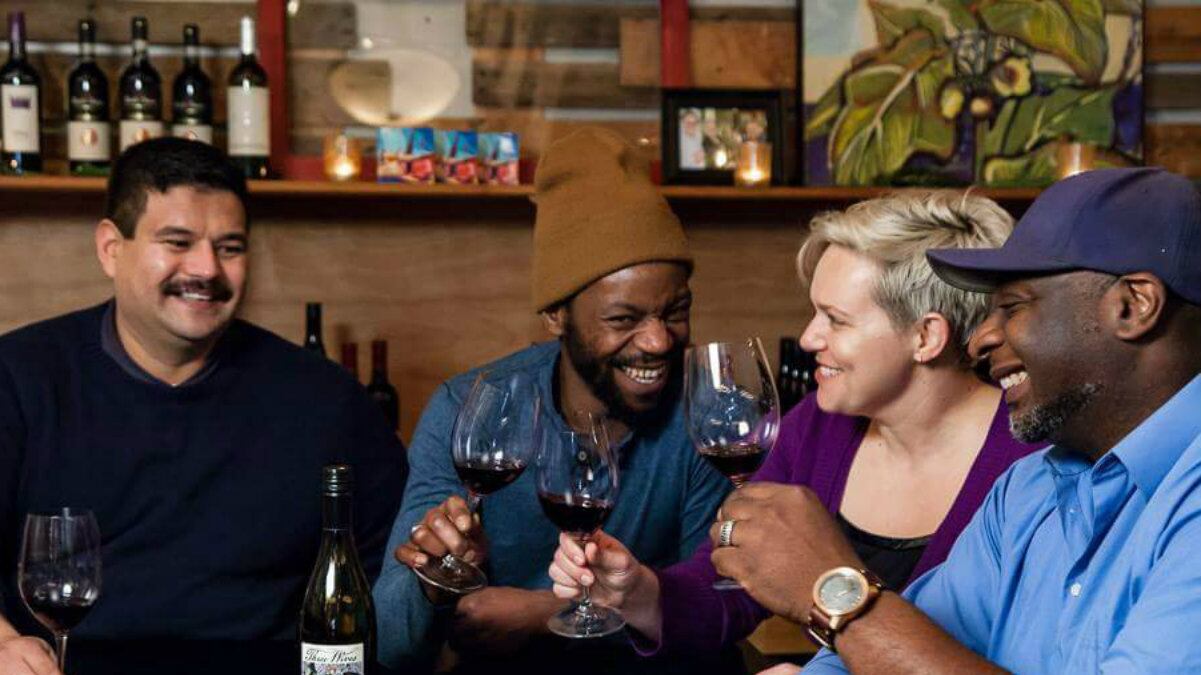In Red, White & Black, Oregon's first recorded black winemaker, Bertony Faustin, recalls a wine event where a customer rudely rejected his wine. The next day, the customer returned to Faustin's Abbey Creek Winery and, upon seeing Faustin again, condescendingly told him, "You're persistent."
Directed by Jerry Bell Jr., Red, White & Black chronicles the struggles and triumphs of Oregon's minority winemakers. Remy Drabkin of Remy Wines, who is gay, once went to a trade show where a man refused to acknowledge her presence. Jarod Sleet, who is a member of the cellar team at Argyle Winery and is black, says purveyors who come into the winery have asked him if he knows someone who works there.
Drabkin, Sleet and Faustin are among the many winemakers who entrusted director Bell—an award-winning filmmaker and actor who went viral in 2015 when he and his son, Jerry Bell III, starred in a Swiffer commercial—to tell their stories.
The documentary is brutally frank about the obstacles the state's minority winemakers face. But it also celebrates their talent, their inventiveness and their passion for one of the world's oldest and most mysterious culinary pursuits.
This Wednesday, Red, White & Black screens at Mission Theater with Bell in attendance and a pre-screening wine tasting with the winemakers profiled in the documentary. Before the screening, WW spoke to Bell about his film.
WW: How would you describe your relationship to wine before and after making the film?
Jerry Bell Jr.: I've definitely developed a palate since we started making the documentary. Three years ago, Bertony Faustin was thinking about trying to put together a documentary about his story. I remember when he came to me, I wasn't a big wine drinker. The only kind of wine I liked was the sweet stuff, like riesling and moscato. Since then, I've become a pretty good wine connoisseur. I've been in the trenches during harvest, picking the grapes, pressing the grapes. Just being a part of the process brings you closer to it.
Can you tell me about your first conversation about the film with Faustin?
He didn't know anything about making films. He approached me with the idea to make a documentary. I said, "Hey, there's hardly any people of color in the wine industry. Because there's only a handful, let's enrich the story by sharing other people's journeys."
Did you find that the kinds of discrimination winemakers in the film talked about resonate beyond their industry?
Being a black man in this country, definitely. I think any person of color in this country would be able to relate in some way, shape or form. We had a white male working behind the scenes on this project, and he came in and started trying to guide us on what this documentary was going to be like. And I'm the director. He was trying to script the documentary, and I'm like, "No, we're not scripting." He said, "What's it about?" and I said, "We don't know yet. I need to hear these people's stories to get the realness of it, and then we can figure out how to fuse it all together."
There's an inspirational element to the film. Was that something that was important to you from the beginning?
I remember having this talk with Bertony. I said, "Share your story. Don't be afraid to open up." Anybody's customer base in Oregon is going to be primarily white. And if he said something that could be offensive to white customers, there would be a concern. I was trying to find a way to communicate with him by saying, "We don't just want to talk about the good things. I don't want to just say, 'Your winery's great, your wine is good, you're successful.' We want to talk about the challenges you've faced. We want to hear about your failures." It was a process. He invited me to dinner and he said, "I get where you're coming from. I got it. I need to open up, I need to share my story."
How do you make people feel comfortable?
Trust. I wanted the film to give people facts about the state of Oregon, but I wanted any white person to see the film and understand but not feel like they were being attacked. I want them to feel like, "Hey, we're in this together. Let's go make some changes." I didn't want it to be like, "White people treated us badly and they got all this land and we have nothing." We had one incident where a library in the Tri-Cities [Wash.] wanted to bring us out for a screening. I sent them the film and they said their only concern was that it had a political implication [an unflattering photo of President Trump drinking wine]. I kept it in.
SEE IT: Red, White & Black screens, with director Jerry Bell Jr., at Mission Theater, 1624 NW Glisan St., redwhite-black.com, on Wednesday, Aug. 1. 8 pm. $9 advance, $15 day of show.
